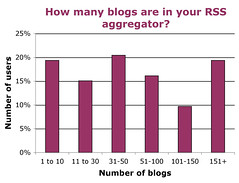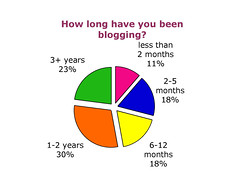Years and years ago I worked with the team that produced a very slick little downloadable application called Gator. Gator would watch what Web sites you visited and pop up contextually relevant adverts and coupons in its own window, along with easy form auto-fill and a digital “wallet” for payment information. Gator was vilified by the online community and paraded about as the ultimate triumph of commerce over information, of the evils of capitalism crushing the eager egalitarianism of the mythical “open network”.
Gator, the company, still exists today, and still garners controversy, albeit under its new moniker of Claria Corporation and Gator, the application, has spawned two progeny, Gator Wallet and Dash Bar.
Today my colleagues at LinkedIn told me about a new system, LinkedIn JobsInsider, and rather to my surprise it’s another standalone app that keeps track of where you surf and pops up useful information based on what you’re viewing in your Web browser.
At this point in the evolution of the Web, though, we don’t even think about these tracking applications. The Alexa toolbar, the Google toolbar, the Yahoo toolbar, etc. etc., all dutifully track where you go and report back that information to a central server, and far from people being upset by that violation of privacy, most are eager to download and install one or more of these toolbars on their computer.
LinkedIn JobsInsider is actually quite brilliant and worth a quick explanation, before I go back to the main theme here of software that tracks your surfing. I asked Konstantin Guericke about this new system and here’s his explanation, a day in advance of their demo at Web 2.0 in New York:
“The LinkedIn JobsInsider works with Monster, CareerBuilder, HotJobs, Craigslist and Dice. We noticed that those of our users who are currently looking for a position (between 5-10% of our membership) tended to flip back and forth between LinkedIn and these job boards. They would look for jobs on the major jobs destination sites, but then didn’t bother to apply there since the chances of landing a job without a referral are about as high as a chimp writing the next great American novel. Well, maybe a bit better, but the reality is that it’s really helpful to speak with people at the companies where you are applying, and you are unlikely to find people willing to help you if you just Google them.
“However, when you have the LinkedIn JobsInsider installed (and it takes no screen real estate unless you are on a job board) and look at a job, then it automatically fires off a search to find out if any of your contacts know people at the company that is posting the job.
“Even better, it narrows the results down to those people working at the location where the job is posted and who have indicated they are willing to help people land jobs at their company. With any luck, the person you contact will not only provide you with some good insights into the company’s culture, prospects and hiring process, but also pass on your resume to the hiring manager.”
I think that’s a brilliant intersection of professional online networking and the ingredients that produce a sucessful job search and would like to congratulate LinkedIn on this innovation.
But isn’t it doing the same basic thing that Gator did all those years ago? Isn’t it yet another application that watches what we’re doing, keeps track of the sites we visit and what we view on those sites, then does “something useful” on our behalf?
If I visit a site with the Google toolbar installed, I can instantly see its Google PageRank, a rough but interesting indicator of the relative importance of the site on the Internet. Another toolbar includes Alexa ranking numbers, offering a similar insight and letting me distinguish popular sites from new, unpopular sites.
So what exactly is still upsetting to the people who don’t like Claria’s tracking application? What differentiates a useful, valuable application like LinkedIn JobsInsider from a heinous piece of malware like a spyware application?
Perhaps it’s all in the definition of “something useful” in my earlier comment, after all. Surely something useful is measured on a continuum that inevitably varies for different people. Some are happy to report back information in return for discount codes, coupons, and highly targeted advertising that helps them find the best bargains possible, while others hate the very idea and wouldn’t install and enable a third-party toolbar if you paid them.
Yet in a lot of ways, it was the “reporting back to the mother ship” nature of Gator that caused so much controversy when it first appeared on the scene, a characteristic that is so pervasive now that we are blasé about it and don’t even worry that various companies have the (theoretical, at least) ability to track our every mouse click.
After all these years of Web evolution, after the breathless hype about combining existing technologies in new ways that goes by the moniker of “Web 2.0”, everyone’s just starting to get what I believe the Gator folk figured out a long time ago: tracking what sites I visit and utilizing that data in real time enhances my experience.
LinkedIn had another announcement at the Web 2.0 conference too, focused on a new partnership with America Online. Please read Alex de Carvalho’s cogent analysis for more details.

 Quite a number of blogging books are being written today. (Talk about stating the obivous.)
Quite a number of blogging books are being written today. (Talk about stating the obivous.)  Arieanna’s section on the latest bit from our survey—
Arieanna’s section on the latest bit from our survey— A little while ago we launched a survey of Qumana users to better understand both how they are using Q, but also more about them and their blogging. Arieanna’s first post on the results of the survey is really good—
A little while ago we launched a survey of Qumana users to better understand both how they are using Q, but also more about them and their blogging. Arieanna’s first post on the results of the survey is really good—




